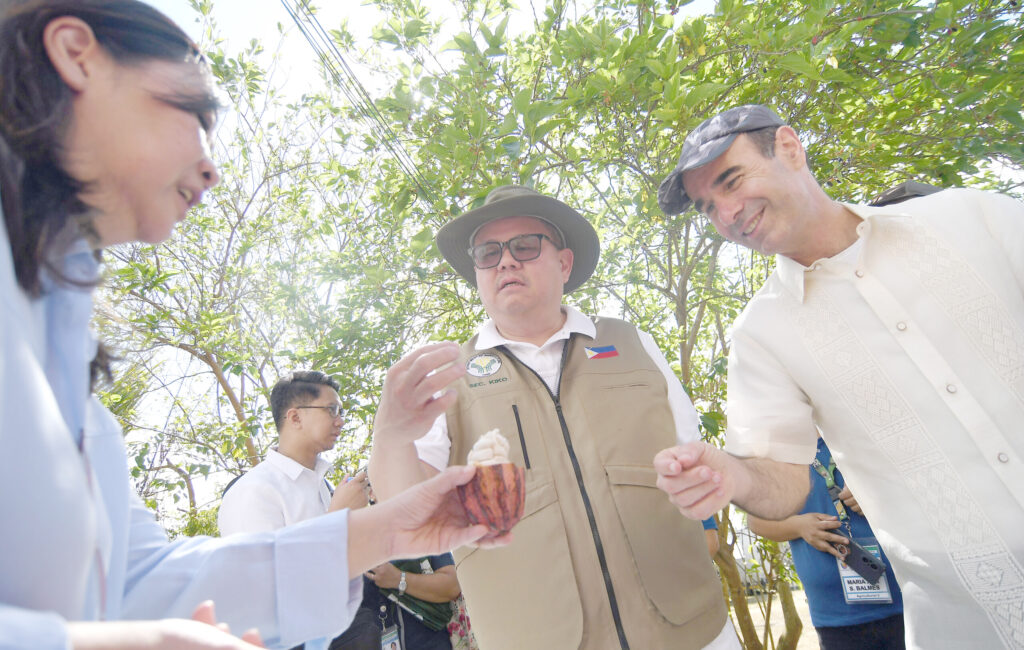There’s still a sweet side to cacao farming.
The Department of Agriculture is ready to help struggling cacao farmers through its High-Value Crops and Development Program.
DA Secretary Francisco Tiu Laurel admits that the local cacao industry needs to be revitalized and the HVCDP can educate farmers on how to maximize the economic and livelihood potential of their crop.
“Some of the cacao trees are now being cut because farmers are not making much money from cacao since they do not really know how to process it after harvesting,” Laurel said during his visit to the Filipinas Cacao Heritage Reserve on 5 March 2024.
Under the HVCDP, the estimated 74,428 Filipino cacao farmers could get planting materials and farm inputs, capacity-building seminars and training, cacao technology demonstration sites, farm machinery and equipment, and irrigation facilities.
The DA also taps technology from Israel.
During Laurel’s visit to the FCHR, Filipino agricultural technologists and their Israeli counterpart led by Israeli Ambassador Ilan Fluss demonstrated integrated pest management techniques, drip irrigation, weather monitoring systems, cacao breeding and grafting methods, composting practices and other Israeli practices and technologies applied to cacao growing.
Licensed Filipino agriculturists, foresters, agricultural and biosystems engineers, and agri-technicians work on the13-hectare FCHR in Barangay Bunggo, Calamba, Laguna. The farm has been getting technical assistance from the Embassy of Israel in Manila since 2022 and is working under the mentorship of Israeli experts in cacao production.
The collaboration has led to the successful rehabilitation and revitalization of a 90-year-old Criollo cacao tree in Barangay Bunggo, which originally came from Mexico, according to local historical accounts. The tree is said to be serving as the cacao farm’s source of planting materials.
“I believe that through this partnership between Israel and the Philippines, we are now able to see some changes in Philippine farming, not just in cacao but also in other crops. Hopefully, this will also be a catalyst for change for the Philippines,” said farm owner Jacqueline Sy Go.
